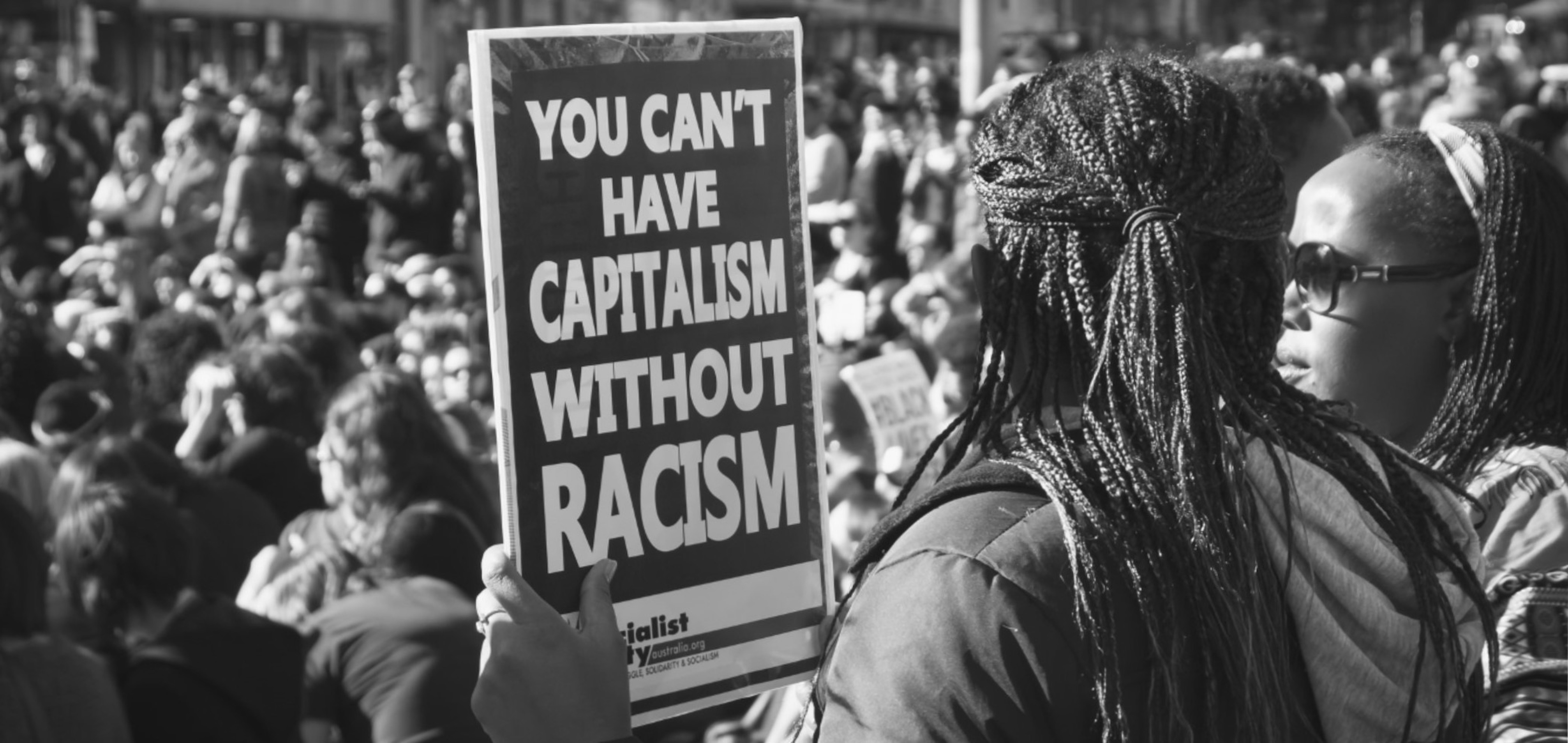by OLUFEMI O. TAIWO & LIAM KOFI BRIGH

Theorists of racial capitalism are not interested in the characteristics capitalism could have had in some imagined world, but in the world as it exists.
“The point of theorizing about racial capitalism is to focus our attention on the broader forms of organization that are constitutive of social life under capitalism, beyond how it organizes work and production.”
In a recent article for Dissent, editor emeritus Michael Walzer wonders aloud what “racial capitalism” means. Its conclusion stops graciously short of calling for a ban of the term, but does suggest that “the phrase should always be queried by the editors,” since he has failed to pin down a satisfactory definition of the term.
But why was Walzer spitballing about what “racial capitalism” means in the first place? He could have just asked.
The theory of racial capitalism concerns a set of intellectual positions about our global social structure that developed over the twentieth century. Eric Williams’s 1944 classic Capitalism and Slavery argued for what economic historians now know as the “Williams thesis”: roughly, that the trans-Atlantic slave trade caused the development of both global racism and capitalism. In the 1950s, his fellow Trinidadian, the sociologist Oliver C. Cox, developed some of the key building blocks of what became the “racial capitalism” theory in the books Class, Caste, and Race and The Foundations of Capitalism, in which he compared and contrasted the social structures found on the Indian subcontinent with those of pre-capitalist Europe. Among his many conclusions: that “racial antagonism . . . developed within the capitalist system as one of its fundamental traits.”
“The trans-Atlantic slave trade caused the development of both global racism and capitalism.”
African-American political theorist Cedric Robinson followed up on this work in Black Marxism, a text which thoroughly criticized Marx and Marxists for inattention and marginalization of non-Europeans. Robinson’s book is often credited as the origin of the term “racial capitalism” to refer to the way of understanding the general history of global capitalism developed by himself and these thinkers. African-American geographer and abolitionist Ruth Wilson Gilmore, one of today’s leading theorists of racial capitalism, built on this further, famously defining racism as the “the state-sanctioned or extralegal production and exploitation of group-differentiated vulnerability to premature death.” Racism so understood, she argues, has been important for regimes struggling to maintain themselves amidst political and economic crises, thereby giving racism a functional role in the production and reproduction of capitalism itself.
Black Agenda Report for more
